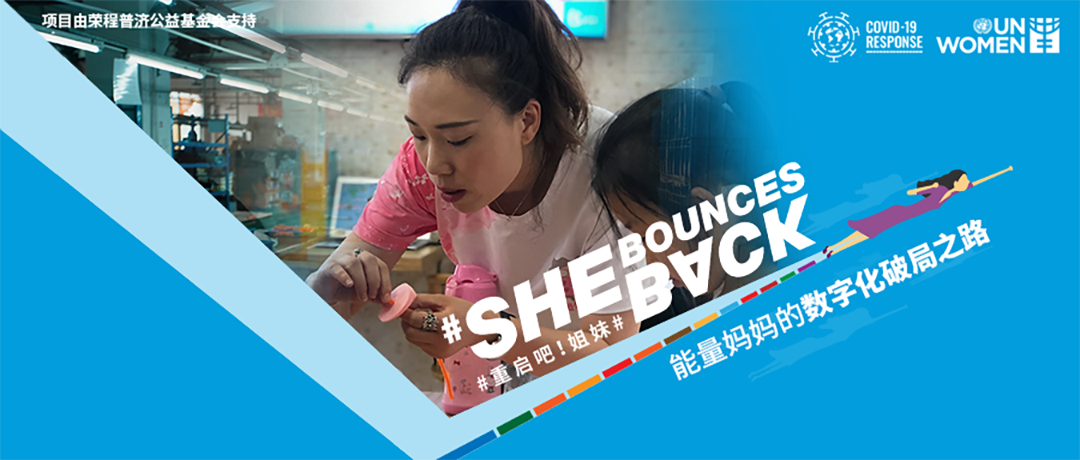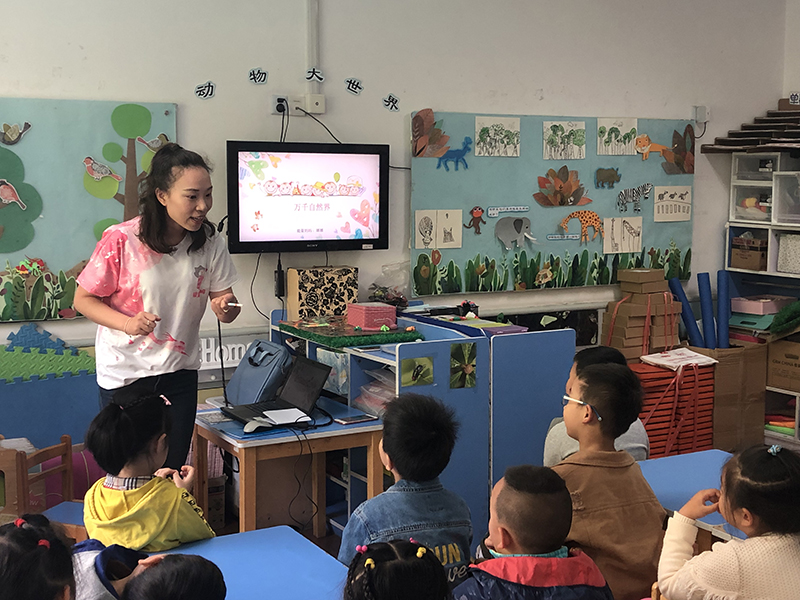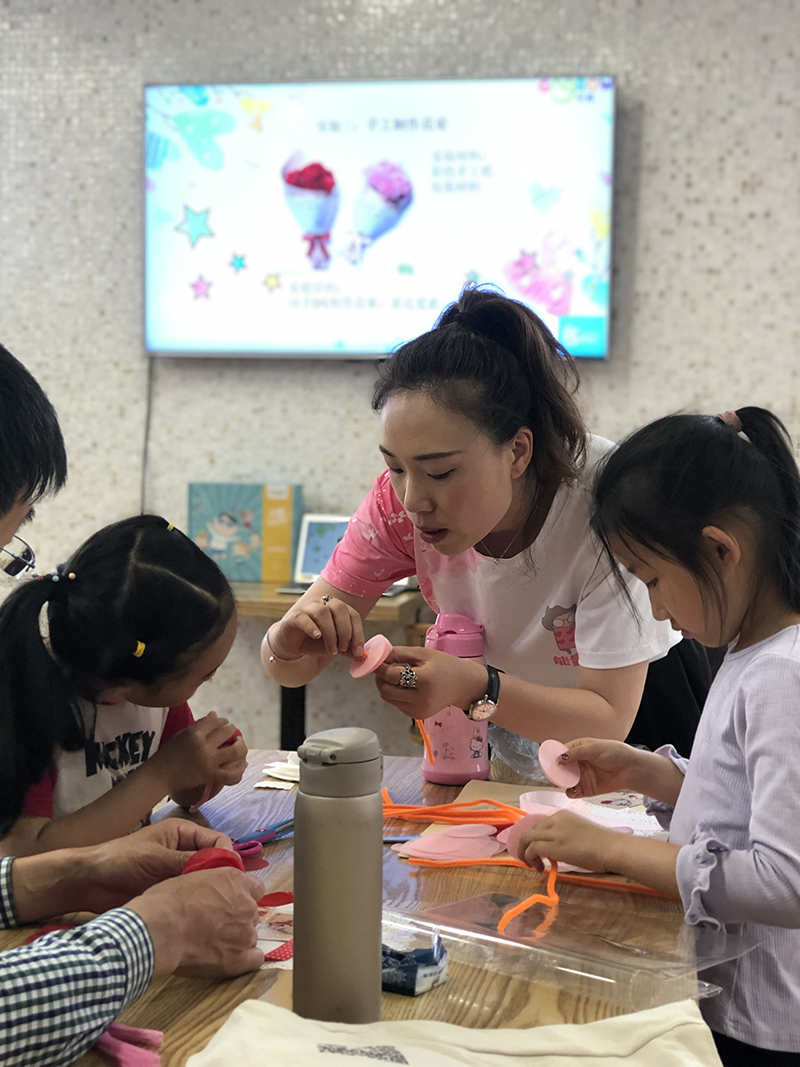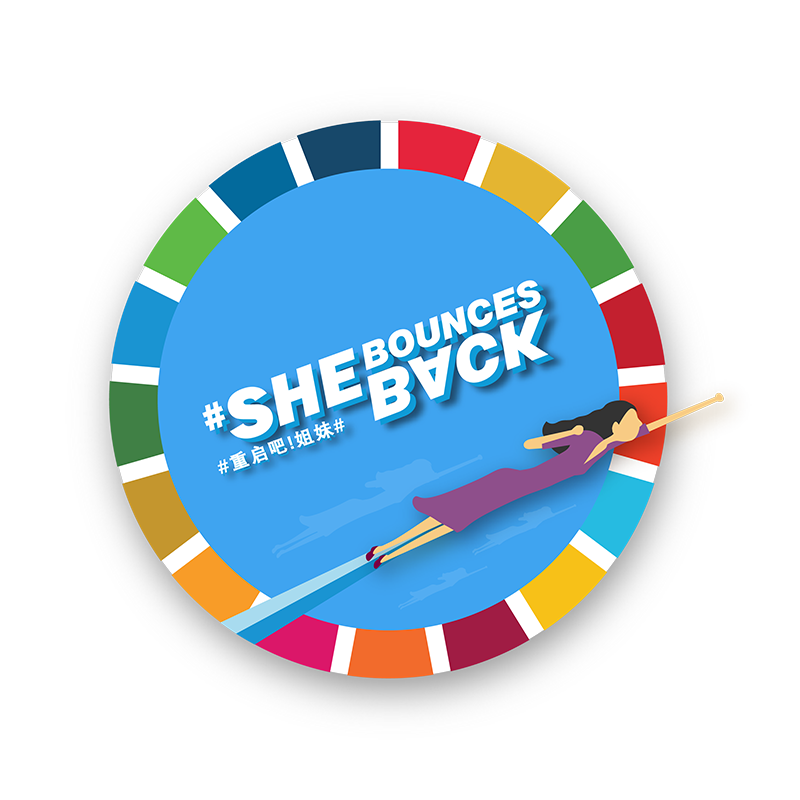
Sun Weina: One ‘Energy Mom’s’ breakthrough with digitalization
The first half of 2020 was like a nightmare for those working in parent-child education. Faced with the impacts of the pandemic, many practitioners either ran out of funds or switched to other forms of business in order to survive. Sun Weina shares her story of counterattack and digital breakthroughs during the crisis at the head of her startup, Energy Mom.

Sun Weina. Photo: Sun Weina
"Our company focuses on developing content and delivering innovative parent-child education. The original business model was to export courses to education and training institutions and kindergartens, but because of the pandemic, offline outlets were not able to achieve any sales. On the second day of the Chinese New Year a lot of people were still enjoying the festival, yet many colleagues on my Wechat Group were already starting to problem-solve. Several approaches were discussed, including a plan to move the course, a plan to use online tools instead, and one to cut-off and close completely.
I was fully aware of how severe this crisis could be. If education institutions remained closed, the original offline course model would not work. If children couldn’t come to school, parents would not pay for the courses and the institutions would face huge risks around issuing refunds, which would lead to cash flow disruption. I started to lead a transformation from B2B (business-to-business) to B2C (business-to-consumer) on the seventh day of the Chinese New Year. We saw that online transformation was the only way to save ourselves.

Sun Weina teaches an offline lesson to the
children before Covid. Photo: Sun Weina
For small and medium-sized enterprises like ours, the cost of online traffic is very high and it is difficult to compete with big brands. Our system tools and digital management are weaker. To this end, we formulated a four-step strategy. Firstly, we had to provide a good service to business-end customers, and to work out what this looked like. We used mind maps to help our operations team learn about online business transformation. Secondly, our team went through all the courses and platforms that were suitable for online operations and discussed the sale of our courses with seven online platforms. Thirdly, we identified our customer groups, and provided a detailed guide to parents who were willing to try self-learning. We provided them with multiple courses, ranging from wealth management to psychology. Lastly, we developed new courses and started to strategically cooperate with innovative social education platforms to expand our product lines and the age groups of our target customers.
In the coming year, I also want to further upgrade and build an online consultant team. With the advent of the 5G era and the rise of the short video live broadcast industry, the ‘live broadcast + education’ model is even more promising. What I need to do is to adapt and move forward.

Sun Weina at a handicraft lesson with kids
There are many female entrepreneurs like me. In modern society, women often have multiple roles to play. They are daughters, mothers and ‘managers’ when at home, and they are also employees or leaders in their workplaces. This can divert their attention, and sometimes women have unfortunately been required to choose between family and career. For us, having chosen to start our own business we have to stick to it; without persistence and resilience it would have been difficult to achieve the goals we set at the startup stage.
In promoting gender equality, our company wants to call on the whole of society to support women and their achievements, in and out of the workplace. We know that one mother can influence three generations. We hope to fill more mothers with energy and help more sisters to grow their confidence!”
Using digital solutions for an inclusive crisis response
When both government and business services went online, the gender digital divide became a greater problem for women. Technology has brought opportunities for women’s economic inclusion and digital tools have provided self-help to millions of people during the pandemic. Yet the global gender gap in Internet usage also rose from 11 per cent in 2013 to 17 per cent in 2019, reaching 43 per cent in the least developed countries, showing that many more women than men are unable to access online opportunities. Gender stereotypes restrict women’s access to and use of digital tools. Governments and the private sector can help women build their skills and contribute the post-pandemic economic recovery by, for example, providing digital tools with accessible and flexible online solutions to help women get support or establish new business models.
A quick response and openness to digital transformation allowed Sun Weina and her team to take the first step to recovery. Just like the biologist Charles Darwin wrote in his book, On the Origin of Species, in a drastically changing environment it is not necessarily the strongest creatures that survive, but those who respond most actively and flexibly to change.
